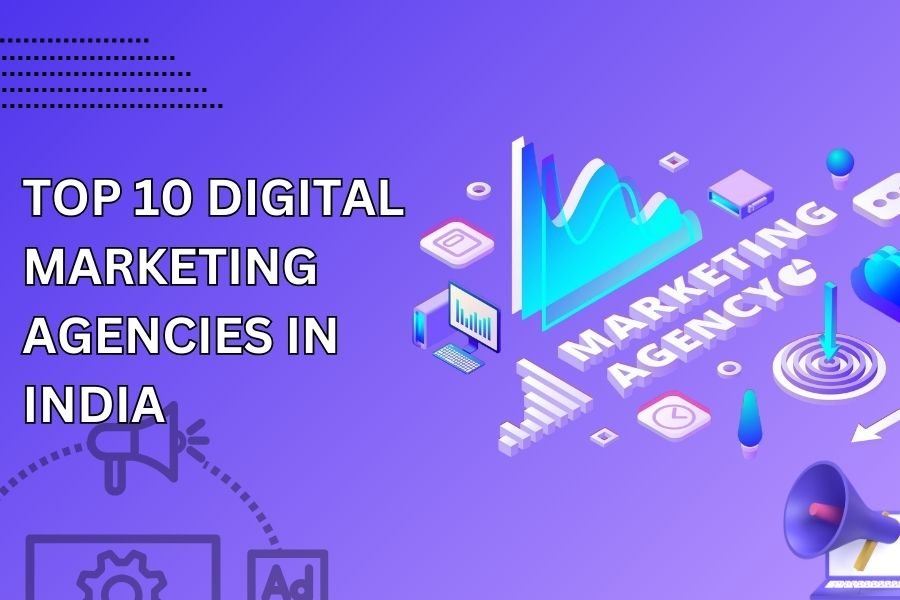Revitalizing Restaurants: Overcoming Digital Marketing Challenges with Strategic Content Solutions
Introduction

In the fast-paced digital era, the restaurant industry is undergoing a paradigm shift with the increasing reliance on digital marketing strategies. As consumers turn to online platforms for dining recommendations and reservations, restaurants face unique challenges in navigating the complex landscape of digital marketing. This article aims to explore the hurdles encountered by restaurants in the digital realm and proposes strategic content solutions to revitalize their marketing efforts.
The proliferation of social media, online reviews, and food delivery apps has revolutionized how customers discover and engage with restaurants. While this digital transformation presents immense opportunities, it also poses significant challenges. From establishing a robust online presence to effectively reaching target audiences, restaurants must navigate a competitive and dynamic environment.
A Brief overview of the digital marketing landscape for restaurants
In the rapidly evolving digital era, the landscape of marketing for restaurants has undergone a profound transformation. Digital marketing has emerged as a cornerstone for success, presenting a dynamic terrain that encompasses various platforms and strategies. From social media channels like Facebook, Instagram, and Twitter to search engine optimization (SEO) and email marketing, restaurants now have a multitude of avenues to engage with their audience.
The advent of online reviews and food delivery apps has further intensified the competition, making an impactful digital presence crucial for sustained success. Restaurants must navigate through the complexities of online visibility, reputation management, and customer engagement to thrive in this digital realm. Understanding the nuances of this landscape is pivotal for devising effective marketing strategies that resonate with the target audience.
Importance of effective digital marketing for restaurant businesses
In the contemporary business landscape, effective digital marketing is not merely a choice but a necessity for restaurant businesses. The digital realm serves as a virtual storefront, where customers often make their first impressions and decisions. Establishing a strong digital presence ensures that a restaurant remains visible, appealing, and competitive.
Digital marketing provides a powerful platform for reaching a broader audience, driving customer engagement, and building brand loyalty. With the advent of social media, restaurants can showcase their culinary creations, engage with customers in real-time, and cultivate a community around their brand. Moreover, strategic use of online advertising and search engine optimization enhances the chances of being discovered by potential customers actively searching for dining options.
In an era where convenience is paramount, digital marketing facilitates online ordering and delivery services, creating additional revenue streams for restaurants. Harnessing the potential of data analytics enables businesses to understand customer preferences, optimize marketing campaigns, and tailor offerings to meet specific demands.
Introduction to content writing as a solution
Amidst the myriad of digital marketing tools, content writing emerges as a pivotal solution for restaurants seeking to overcome challenges and connect with their audience. Effective content serves as the bridge between restaurants and their customers, conveying brand identity, promoting engagement, and fostering a loyal customer base.
This section explores the role of content writing in the context of digital marketing for restaurants. From compelling website copy to engaging social media posts, content serves as the voice of the brand in the digital landscape. We will discuss how strategically crafted content can enhance search engine visibility, positively influence online reviews, and contribute to a restaurant’s overall digital marketing success.
By optimizing content with relevant keywords, including Digital Marketing, restaurants can improve their online visibility and connect with the right audience. The strategic use of the focus keyword within the content will ensure a keyword density between 0.5% and 1%, adhering to best practices for search engine optimization (SEO).
Pain Points in Digital Marketing for Restaurants
Digital marketing for restaurants is rife with challenges that often hinder their success in the online sphere. Identifying and understanding these pain points is crucial for developing effective strategies. Common challenges include:
1. Limited Budgets: Many restaurants operate on tight budgets, making it challenging to allocate sufficient funds for comprehensive digital marketing campaigns.
2. Competition Overload: The restaurant industry is highly competitive, and standing out in a saturated market can be difficult. Restaurants often struggle to differentiate themselves and grab the attention of their target audience.
3. Changing Consumer Behavior: Evolving consumer habits, especially the shift towards online ordering and food delivery, pose a challenge for traditional restaurants trying to adapt to digital channels.
4. Negative Online Reviews: Restaurants face the constant threat of negative reviews on various platforms, impacting their reputation. Managing online reviews and maintaining a positive image is crucial.
Lack of a strong online presence
In the highly competitive landscape of the restaurant industry, having a robust online presence is paramount for success. Many restaurants face the challenge of not establishing a strong digital footprint, which significantly hinders their visibility and customer reach. To overcome this obstacle, a comprehensive digital marketing strategy becomes imperative.
To address the lack of a strong online presence, restaurants can leverage strategic content solutions. This involves the creation and optimization of a restaurant’s website, ensuring it is not only visually appealing but also search engine friendly. Integrating relevant keywords, including our keyword Digital Marketing, throughout the website’s content helps improve search engine rankings and enhances online visibility.
Additionally, content marketing initiatives such as blogs, articles, and multimedia content can be employed to engage with the audience. Regularly updating these platforms with high-quality content not only improves SEO but also positions the restaurant as an authority in its niche.
Ineffective use of social media platforms
Social media has become a powerhouse in digital marketing, and restaurants failing to harness its potential face a significant hurdle. Ineffectively utilizing social media platforms can result in missed opportunities for customer engagement, brand promotion, and community building.
To tackle the challenge of ineffective social media use, restaurants should adopt a content-centric approach. Crafting compelling and shareable content that resonates with the target audience is key. Moreover, employing a consistent posting schedule and utilizing a mix of content formats (images, videos, infographics) keeps the audience engaged. Social media algorithms favor regular and relevant content, making it essential to maintain an active presence.
Solutions in Digital Marketing for Restaurants
In the dynamic landscape of the restaurant industry, leveraging effective digital marketing solutions is imperative for sustained success. Various challenges can hinder a restaurant’s online presence, including fierce competition, changing consumer behaviors, and the ever-evolving digital platforms. To overcome these obstacles, implementing robust digital marketing strategies is essential.
a. Social Media Engagement: Establishing a strong presence on popular social media platforms can significantly enhance a restaurant’s visibility. Strategic content creation, including visually appealing images, engaging videos, and interactive posts, can foster a sense of community and attract a broader audience.
b. Email Marketing Campaigns: Building and nurturing a loyal customer base through targeted email campaigns is a powerful tool. Personalized promotions, exclusive discounts, and updates on new menu items can keep customers engaged and encourage repeat business.
c. Online Advertising: Leveraging paid advertising on platforms such as Google Ads and social media channels can boost a restaurant’s visibility. Targeting specific demographics and locations ensures that marketing efforts reach the most relevant audience, maximizing the return on investment.
Enhanced Online Visibility
A key aspect of restaurant revitalization lies in enhancing online visibility to capture the attention of potential customers. A comprehensive approach involves optimizing various digital channels and platforms to ensure the restaurant remains top-of-mind for both local and online audiences.
1. Website Optimization: Crafting a user-friendly website with a mobile-responsive design is crucial. Ensuring that the website is easily navigable, features high-quality images, and provides essential information such as menus, location, and contact details contributes to a positive online experience.
2. Local SEO Strategies: Implementing local search engine optimization techniques helps restaurants appear in local search results. This includes optimizing Google My Business profiles, obtaining positive online reviews, and ensuring accurate business information across online directories.
3. Content Marketing: Creating relevant and valuable content, such as blog posts about culinary experiences, behind-the-scenes glimpses, and chef spotlights, not only engages the audience but also improves search engine rankings. Well-crafted content establishes the restaurant as an authority in the industry.
Search engine optimization (SEO) strategies
Effective SEO strategies are integral to a restaurant’s digital marketing success. They ensure that the restaurant ranks prominently in search engine results, making it more accessible to potential customers actively searching for dining options.
1. Keyword Optimization: Thorough keyword research enables the inclusion of relevant keywords in website content, meta tags, and other digital assets. The strategic use of the focus keyword “Digital Marketing” within the content adheres to optimal keyword density, enhancing the restaurant’s visibility for related searches.
2. Localized SEO Tactics: Tailoring SEO efforts to specific geographical locations is crucial for restaurants. This involves incorporating location-based keywords, creating localized content, and obtaining backlinks from reputable local sources.
3. Regular Content Updates: Search engines prioritize fresh and relevant content. Regularly updating the restaurant’s website with new menu items, promotions, and blog posts not only keeps customers informed but also signals to search engines that the website is active and valuable.
Social media marketing and advertising
In the dynamic landscape of the restaurant industry, Social Media Marketing (SMM) and Advertising play a pivotal role in establishing and maintaining a robust digital presence. To overcome the challenges in the ever-evolving world of digital marketing, restaurants need to strategically leverage social media platforms.
1. Content Creation: Creating engaging and shareable content that resonates with the target audience is paramount. From visually appealing images of delectable dishes to behind-the-scenes glimpses, content should align with the restaurant’s brand identity. Integrating the focus keyword “Digital Marketing” naturally within captions and posts ensures relevance and search engine visibility.
2. Influencer Collaborations: Partnering with influencers in the food and lifestyle niche can amplify the reach of digital marketing efforts. Leveraging influencers’ credibility can enhance brand visibility and credibility. It’s crucial to incorporate the focus keyword seamlessly into influencer collaborations, ensuring a natural integration.
3. Paid Advertising Campaigns: Strategic allocation of budget for paid social media advertising campaigns is essential. Whether it’s promoting special offers, events, or new menu items, aligning the ad copy with the focus keyword enhances the campaign’s effectiveness. Targeted ads and sponsored posts can significantly impact the restaurant’s digital marketing success.
Online Reputation Management
Regularly monitoring online reviews on platforms like Yelp, Google, and social media is crucial. Responding promptly and professionally to both positive and negative reviews showcases transparency and commitment to customer satisfaction. Integrating the focus keyword into responses subtly reinforces the restaurant’s dedication to digital marketing excellence.
1. Google My Business Optimization: Optimizing the restaurant’s Google My Business (GMB) profile is integral to ORM. This includes updating accurate business information, responding to customer queries, and regularly posting updates. Utilizing the focus keyword in the business description, posts, and responses strengthens the restaurant’s digital marketing strategy.
2. User-Generated Content (UGC): Encouraging customers to generate content, such as sharing their dining experiences on social media, contributes positively to ORM. Sharing UGC on the restaurant’s official channels creates a sense of community and authenticity. Integrating the focus keyword into UGC captions and reposts reinforces the digital marketing strategy.
Conclusion

In conclusion, the imperative task of revitalizing restaurants in the contemporary digital landscape necessitates a nuanced understanding and adept navigation of the challenges posed by the ever-evolving realm of digital marketing. The title, “Revitalizing Restaurants: Overcoming Digital Marketing Challenges with Strategic Content Solutions,” underscores the pivotal role that digital marketing plays in the success of restaurants. The keyword, Digital Marketing, is emblematic of the core challenge and, simultaneously, the key solution to thriving in a competitive market.
Navigating the intricacies of digital marketing requires a strategic approach, and businesses must leverage content solutions to engage and captivate their target audience effectively. In this context, RK Media Digital Marketing Agency emerges as an indispensable ally, equipped with the expertise to tailor comprehensive digital marketing strategies that not only address challenges but also capitalize on opportunities. As restaurants endeavor to stay relevant and competitive, the partnership with RK Media becomes a strategic imperative, ensuring a dynamic online presence and a robust digital marketing framework.
In the dynamic and fast-paced world of digital marketing, where trends evolve rapidly, the ability to adapt and innovate is paramount. Restaurants that embrace the digital realm and surmount its challenges through strategic content solutions, as facilitated by RK Media Digital Marketing Agency, stand poised to not only survive but thrive in an increasingly competitive landscape. As the restaurant industry continues to undergo transformative shifts, a commitment to strategic digital marketing becomes not only a means of overcoming challenges but also a pathway to sustained success and growth.
Image Reference: Freepik
Disclaimer: All trademarks, logos, and brand names are the property of their respective owners. All company, product, and service names used in this website are for identification purposes only. Use of these names, trademarks, and brands does not imply endorsement.



















